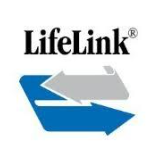Dive Brief:
- Medicare's Hospital Compare reporting system, which has never demonstrated any impact on patient outcomes, may be affecting the prices of hospital-based procedures, according to a study by the Milken Institute’s School of Public Health at George Washington University.
- The study compares the pricing on two common, but high-priced, cardiac procedures: coronary artery bypass graft (CABG) and percutaneous coronary intervention (PCI). The study—which is slated to be featured in the January issue of Health Affairs—examined the rate of increase in prices on these two procedures in hospitals that mandated a public reporting system prior to the introduction of Hospital Compare (the control group) and those who didn't use one until the program was initiated. According to the Health Affairs abstract, annual rates of price increase for PCI were 4.4% in states with no previous reporting requirements, but rose to 8.7% in states that mandated public reporting systems. For CABG prices, it was 3.9% versus 10.6%, respectively.
- The findings seem to imply that Hospital Compare provided leverage to purchasers in moderating price increases, while adding competitive pressures on hospitals. The authors further stated that providing accurate quality information on both hospitals and health plans could benefit consumers.
Dive Insight:
Medicare may have backed into a success story they never saw coming.
Hospital Compare's original goal was to provide information to consumers on the quality of care at hospitals so they could make informed decisions on where to seek treatment, as well as encourage hospitals to increase their quality of care. The fact that the information on the consumer-based information site could possibly be empowering insurers and purchasers at the bargaining table is an unexpected development, but critical to understand as the program continues to mature.
Keeping prices down and moderating cost increases over time has long been a goal of a government trying to get a handle on the increasingly high price of staying healthy. That being said, we're pretty sure they never had a clue that the program designed as a government-backed Angie's List—using mandated reporting from the hospitals instead of consumer reviews—was ever intended to empower insurers at the bargaining table.
But we'll take any government program that helps keep healthcare costs down, even if they created it accidentally.













